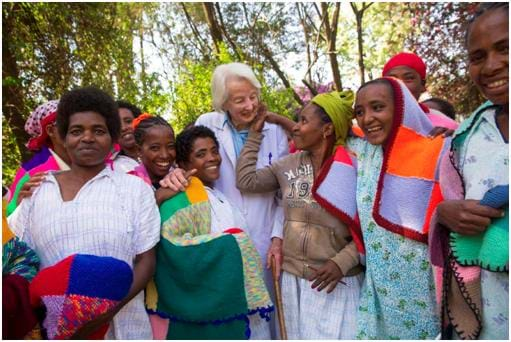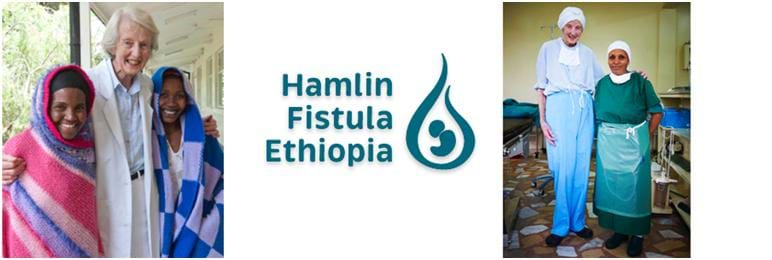Raising awareness for women in Africa and the work of doctors Reg and Catherine Hamlin by Tus Jierasak

For most of us, we have most likely never heard of, won't need to worry about, and definitely won't experience an obstetric fistula during childbirth. In countries like Australia, it is almost non-existent. Unfortunately, this is not the case everywhere.
Predominantly in countries of sub-Saharan Africa and Asia, unimaginable complications during childbirth still frequently occur. These are called obstetric fistulas. A fistula is an abnormal connection between two organs. An obstetric fistula is an abnormal hole that forms a passageway between the vagina and bladder or rectum, which occurs during childbirth. If a woman has an obstructed labor, or a prolonged labor that lasts days, her contractions continue to push the baby's head against the pubic bone, which causes the soft tissues to become compressed, and not receive any blood flow. This lack of blood flow causes the tissues to die, creating a fistula between her pelvic organs. This is a complication seen only in societies where birthing is done at home, without medical assistance and in very young mothers.
Physically, the obstetric fistula forms a hole, which acts as a passageway between the mother's vagina and bladder or rectum, leaving her permanently incontinent of urine, faeces, or both, through the vagina. This can further lead to skin infections, kidney disorders, or if left untreated, death. 93% of survivors give birth to a stillborn baby.
Socially, the consequences are devastating. In countries where a woman's social status and self-esteem depend on her marriage and ability to have children, women are abandoned by their husbands, rejected and forced out of their villages, and left to live marginalised in isolation and shame.
Around 2 million young women live with untreated obstetric fistula in Asia and Africa, and each year between 50 000 and 100 000 women worldwide develop obstetric fistula. In developing countries, living in rural areas means limited access to healthcare. Poverty and lack of money for obstetric care puts women further at risk. Obstetric fistulas develop when emergency obstetric care is not available to women who develop complications during labor. It is preventable, and treatable. Obstetric fistulas can be prevented if a woman has access to quality obstetric care including a trained midwife, and an emergency cesarean section. If an obstetric fistula has occurred, it can be closed with reconstructive intra vaginal surgery. This operation is life-restoring, the cost of a single surgery around $600.

Holistic rehabilitation includes physiotherapy, and counseling and support, which is essential to help restoring the woman's dignity and social reintegration. No woman should have to live with this debilitating condition which can be prevented and treated. Prevention is key to ending obstetric fistula. Through increased global public awareness, and providing increased services to obstetric healthcare, there is hope.
To find out more, or how you can offer a life changing gift, visit https://hamlin.org.au/